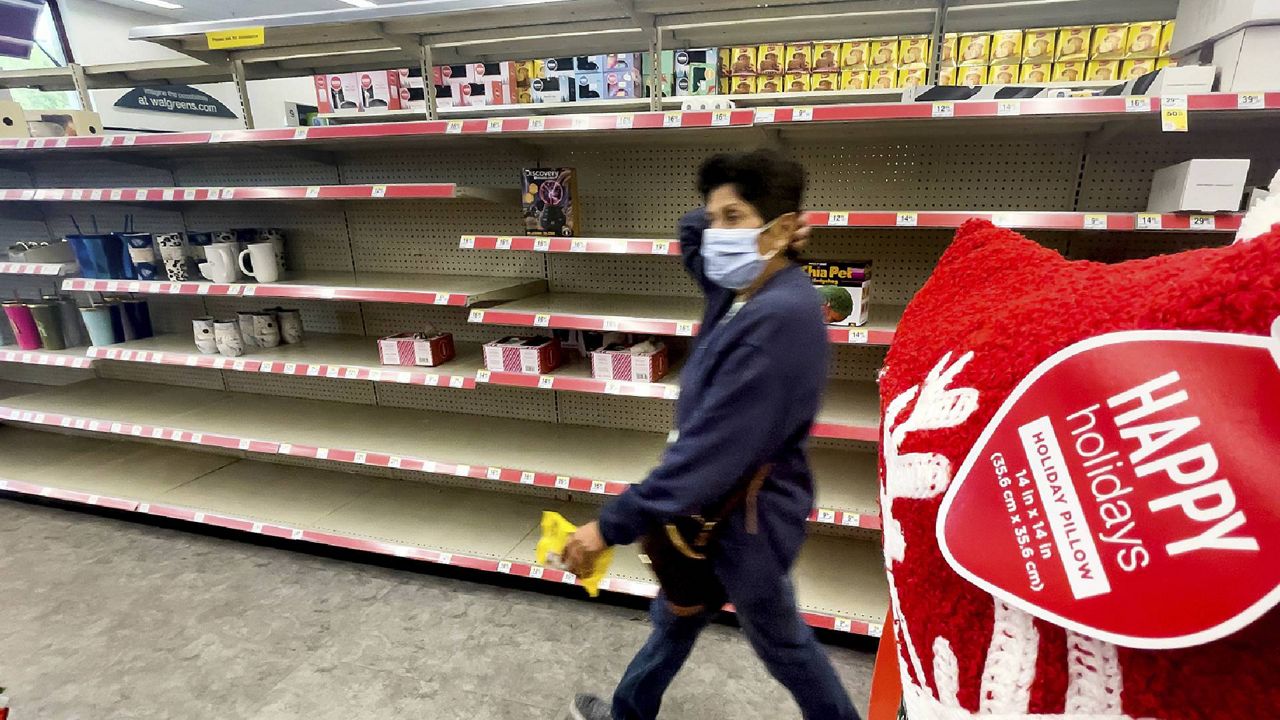The Biden administration on Monday asked major U.S. companies to provide information about their supply chains and the issues they’re facing to inform a new federal inquiry, as disruptions continue to delay products around the country.
The Federal Trade Commission voted unanimously to launch a study of supply chains to figure out whether “disruptions are leading to specific bottlenecks, shortages, anticompetitive practices or contributing to rising consumer prices.”
Large retailers and suppliers like Walmart, Amazon, Kroger, Tyson Foods, Procter & Gamble and Kraft Heinz are being asked to hand over details about any factors hindering their ability to obtain and move products, how their prices are affected and their strategies for handling supply chain issues. They will have 45 days to respond to the FTC request.
The Biden administration has sought to aid the flow of goods ahead of the holiday season and stem pandemic-related delays by addressing bottlenecks at ports, shipping fees and shipping infrastructure.
The emergence of new COVID-19 variant omicron could add to the crunch, said Federal Reserve Chair Jerome Powell in remarks prepared for a Senate hearing on Tuesday.
President Joe Biden met earlier Monday with CEOs of some of the same major companies in the FTC request, including Walmart and Kroger, plus Etsy, Best Buy, Food Lion and others.
The group discussed preparations for the holiday season and how major retailers and grocers would make sure shelves are stocked in the coming weeks.
“Consumer spending has recovered to where it was headed before the pandemic. Early estimates are that Black Friday sales are up nearly a third since last year,” Biden said ahead of the gathering.
“Our supply chain is strong and robust, and we have ample product inside of our stores for customers to choose from,” said Food Lion President Meg Ham, reflecting on Thanksgiving. “We started with an immense amount of planning to be ready.”
Ham said her stores had partnered with local farmers and different brands when necessary to prepare for the holiday.
The president was scheduled to give a speech on supply chains after the meeting, but his remarks were delayed until Wednesday.
One major effort still underway from the Biden administration is an initiative to clear the backlog at large U.S. ports, especially Los Angeles and Long Beach.
So far, the number of containers sitting on those docks for more than nine days has declined more than 40% in the last month, according to a blog posted by the White House on Monday.
And the administration announced two new efforts to continue to address port backlogs: Fees will be waived for containers picked up on the weekend or at night — off-peak hours — and one major carrier will offer $100 discounts for containers picked up quickly.
The Department of Transportation also announced it would extend flexibility for truck drivers to drive more hours over the next three months.
“The port and transit delays are improving,” Walmart CEO Doug McMillon told the president on Monday. “Generally speaking, we’re in good shape.”
Chairman Powell in his prepared remarks for the Senate Banking Committee warned that additional outbreaks of the virus could affect supply chains and prolong economic concerns, especially inflation.
“It is difficult to predict the persistence and effects of supply constraints, but it now appears that factors pushing inflation upward will linger well into next year,” he wrote.



